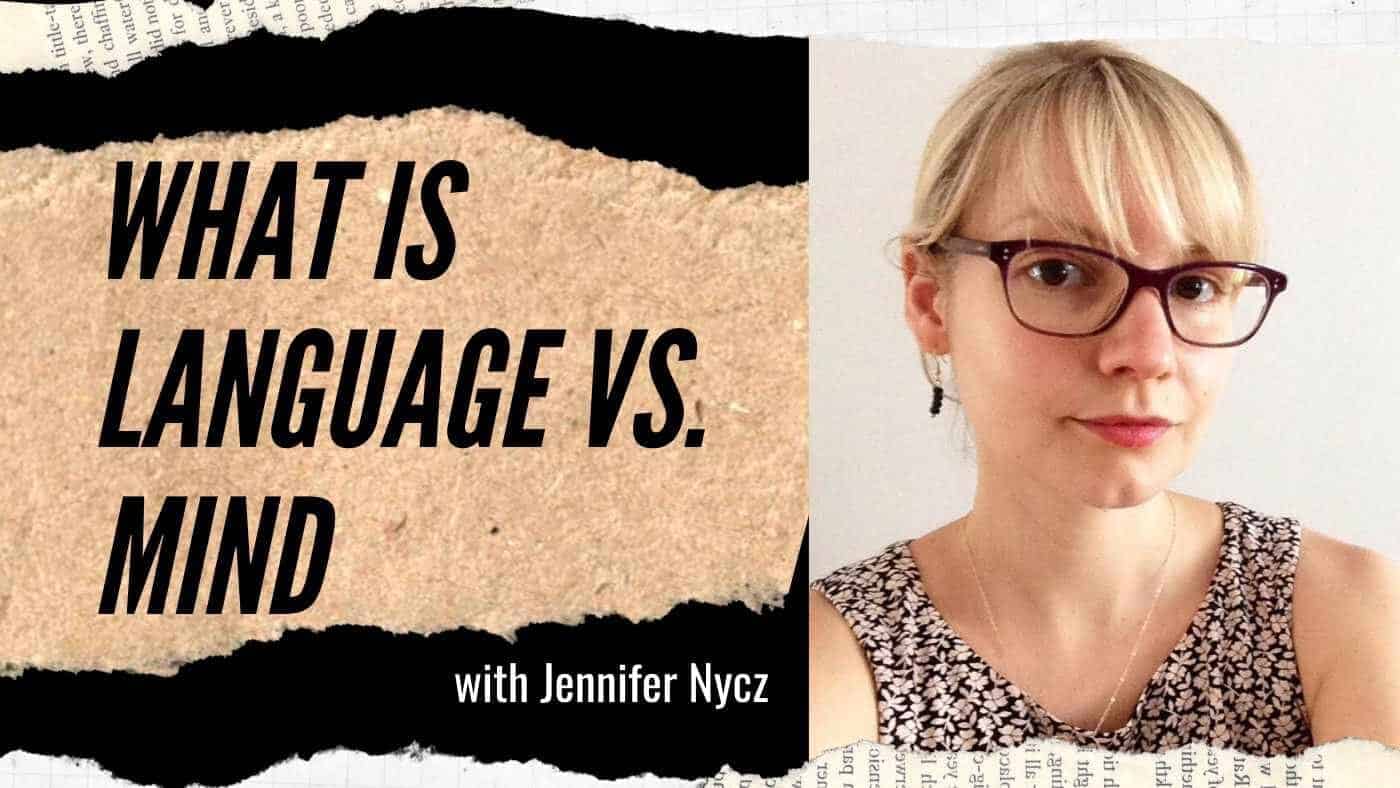Jennifer Nycz: Language and Mind (An Exploratory Conversation) (#116)
Our Guest Today: Jennifer Nycz
Jennifer Nycz is a researcher and teacher for the Department of Linguistics at Georgetown University.
I’ve always been interested in linguistics and semiotics. With many questions unresolved when we began the recording, Jennifer helped answer an array of questions related to accent variation, dialect acquisition, phonetics, sociolinguistics, general linguistics.

An ESL (English as a Second Language) person, I began learning basic English at age of 4 or 5. However, it wasn’t until I was 17 (when I moved to the U.S.) that I started to speak English on a daily basis.
Whether English is your first or second language, we are certain that you will be fascinated by some of the linguistic discoveries in this episode. Perhaps you’ll go as far as challenging yourself to learn more about English, or a new language! It’s good for your brain. 🙂
To learn more about Jennifer Nycz and her work, please visit her website, or connect with her on LinkedIn.
Show Notes
- [05:00] What is your background and where does your name NYCZ come from?
- [06:00] How did you discover Linguistics in the first place? What was your first encounter?
- [10:00] What is the role of the writing system of a language in the learning process, and how does that change across languages?
- [11:00] You mentioned that we learn language structures implicitly, but how did languages and dialects started in the first place, and why?
- [13:00] What are some of the areas within Linguistics and which are the ones that you like the most?
- [16:00] What are some of the social phenomenons and consequences of accents within the same language?
- [19:00] Even within the English language there are hundreds of different accents, and some of them are usually favored against others during social meetings and networking (for example, British vs American). Why is that and what should be our approach?
- [22:00] Is is true that learning new languages get more difficult with age? And how does that relate to the fact that number of older people are learning new languages well?
- [26:00] What are some of the influences from other languages on the English language, and what are some of the consequences in the learning process, besides the grammatical inconsistencies?
- [31:00] What is the role (or the new roles) of linguists in the digital age?
- [33:00] People often have misunderstandings (at work, home, etc). How can a linguist help people understand those flaws and communicate better? Are there tools, resources?
- [39:00] What are some of your interests outside linguistics?
Favorite Quotes
[07:00] Linguistics is all about uncovering the patterns of language that everyone knows. You have all this implicit knowledge of how structure in your language works, at every level of that structure. Not only you know how to pronounce the sounds of your language, you know how many sounds your language uses in the first place, you know the complex rules for how they can be put together into words. You know the complex set of rules for putting words together to make sentences. You know how to put sentences together to make larger structures. And for the most part, you were not explicitly taught any of this.
[09:00] So there was this puzzle-solving aspect of it that was really pleasing, but also this mind-blowing aspect of it. I had no idea all of this was happening under the hood. I just open my mouth and talk, and it happens, but there’s so much more to it than that.
[13:00] Linguistics allows you to flex lots of different muscles. On the one hand is very analytical and involves looking at data and figuring out patterns from that data and developing theories to account for them. But on the other hand it’s social. Language is something we use between people.
[28:00] We all contain multitudes. We all construct different identities in different contexts and we shift the way we speak depending on who we are in a particular context. Everyone does this […] and it can be a real problem for those who speak varieties who are stigmatized. But if you can frame it in a way of ‘you have different ways of being in different contexts’, you can speak one way with your family and it’s perfectly fine, and you speak in another way in a job interview, and it’s all perfectly fine. The more that we can move towards that mindset, the more people will feel good about their language skills and their place in the world.
[38:00] What linguistics has helped me do is to reflect on my own reactions, to any sort of social phenomena. Because I’m a human and I react to things, sometimes in a negative way. But I always step back and think ‘Is the thing that I think is happening actually happening? Is the reading I’m doing about the reasons of why people are doing this correct? And of course when you reflect on these things you often realize that maybe your first reaction is not correct.
Word Cloud, Keywords and Insights From Podintelligence

What is PodIntelligence?
PodIntelligence is an AI-driven, plus human-supported service to help podcasters, webinar hosts and filmmakers create high quality micro-content that drives macro impact. PodIntelligence turns any number of long-form audio and video into word clouds, keyword and topic driven MP3 and MP4 clips that can be easily analyzed and shared on multiple platforms. Learn more: https://www.podintelligence.com/
Acknowledgements/Music (Copy and Paste)
- Acoustically driven instrumental by Hyde – Free Instrumentals
- Creative Commons — Attribution 3.0 Unported— CC BY 3.0
- Music provided by Music for Creators https://youtu.be/2iWw0kJ6V4U

